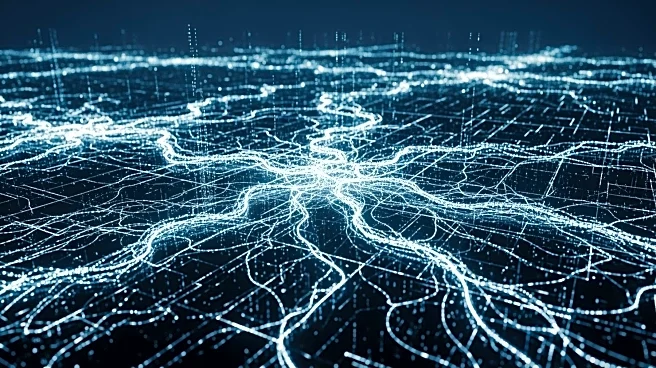What's Happening?
The rise of generative AI has led to a proliferation of 'slop,' a term used to describe the spammy quality of AI-generated content. This includes AI-generated videos, texts, and images that are flooding
the internet, often indistinguishable from real content. The phenomenon is likened to an invasive species, disrupting traditional content creation and consumption. The internet has reached a tipping point where AI-generated articles surpass those written by humans, affecting various sectors including education, corporate communication, and entertainment. The ease of generating content has led to a decline in the quality and meaningfulness of online material, raising concerns about the future of creativity and human agency.
Why It's Important?
The widespread presence of AI-generated content poses significant challenges to the integrity and reliability of information online. It threatens to dilute the quality of human creativity and communication, as AI tools remove the friction and labor involved in content creation. This shift could lead to a cultural dead end, where meaningful human engagement is replaced by synthetic, soulless outputs. The economic incentives for using generative AI are geared towards producing abundant slop rather than enhancing human potential, which could have long-term implications for industries reliant on creative and authentic content.
What's Next?
As AI-generated content continues to dominate the internet, stakeholders such as technology companies, educators, and policymakers may need to address the ethical and practical implications of this shift. There could be increased efforts to regulate and manage the use of AI in content creation to preserve the quality and authenticity of information. Additionally, there may be a push towards developing AI tools that enhance rather than replace human creativity, fostering a more balanced integration of technology in creative processes.
Beyond the Headlines
The rise of AI-generated content invites a form of nihilism into various aspects of life, challenging the notion of creativity and meaning. It raises ethical questions about the role of technology in shaping culture and communication, and the potential loss of human agency in the creative process. The frictionless future envisioned by AI proponents may undermine the value of struggle and iteration in creation, leading to a homogenized and less vibrant cultural landscape.











